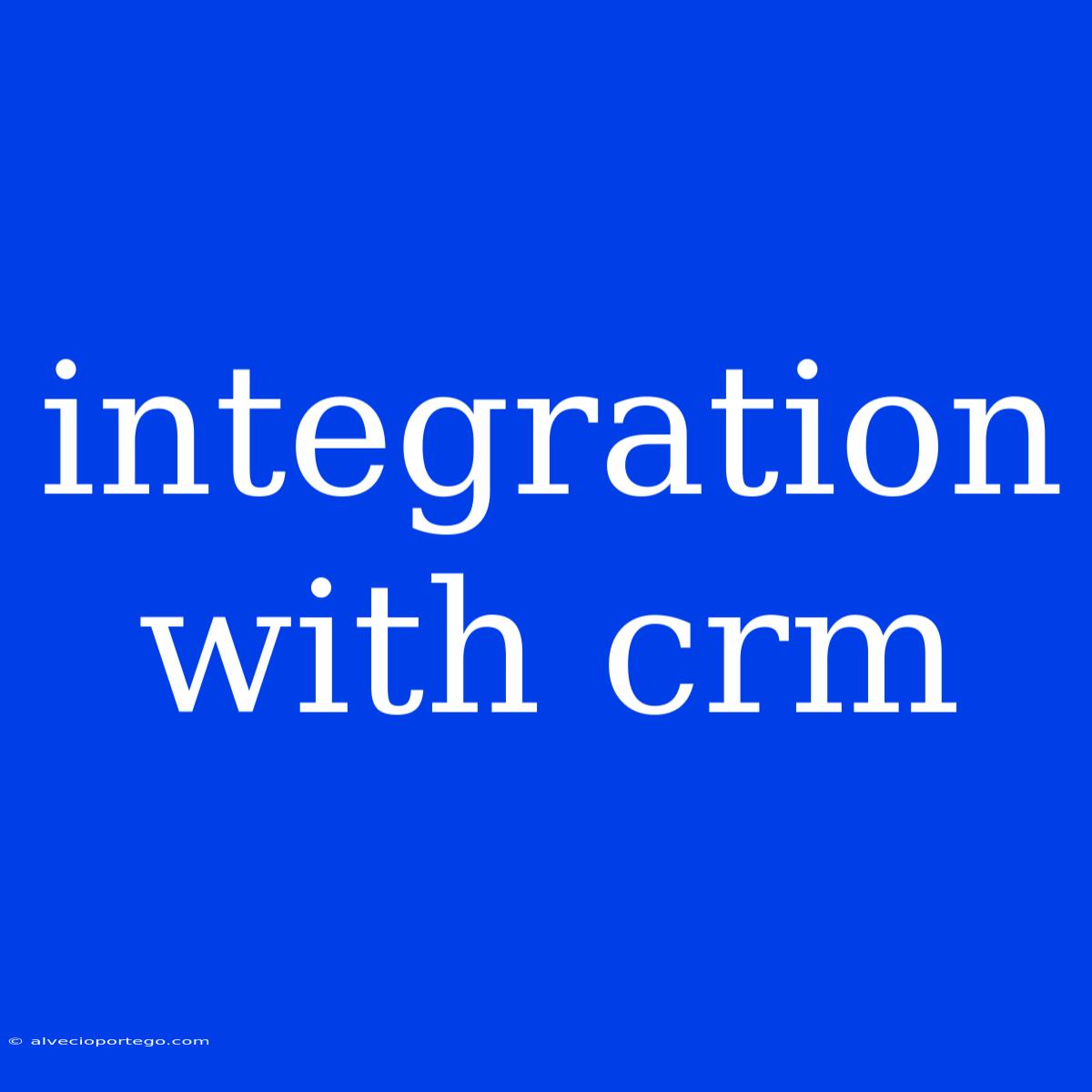The Power of Integration: Why CRM Integration is Crucial for Business Success
In today's competitive business landscape, companies need every advantage they can get. One of the most powerful tools for driving success is a robust Customer Relationship Management (CRM) system. But the true potential of CRM is unleashed when it's seamlessly integrated with other critical business applications.
What is CRM Integration?
CRM integration involves connecting your CRM system with other software applications, such as marketing automation, e-commerce platforms, accounting software, and more. This creates a unified ecosystem where data flows freely between different systems, eliminating silos and fostering a more holistic view of your customers.
Benefits of CRM Integration:
1. Enhanced Customer Experience:
- Personalized interactions: Integrated systems allow you to collect and analyze data from various touchpoints, enabling personalized marketing campaigns, tailored product recommendations, and relevant customer service interactions.
- Streamlined communication: Integrated communication channels ensure consistent messaging across email, chat, phone, and social media, providing a seamless customer experience.
2. Improved Operational Efficiency:
- Automated workflows: Automation eliminates repetitive tasks, freeing up valuable time for your team to focus on strategic initiatives.
- Reduced errors: Data synchronization between systems minimizes data entry errors and ensures consistency across departments.
- Streamlined sales processes: Integrating CRM with sales platforms enables real-time insights into customer interactions, deal status, and sales pipelines.
3. Data-Driven Insights:
- Real-time reporting: Integrated systems provide access to a comprehensive view of customer data, enabling real-time reporting and informed decision-making.
- Predictive analytics: By analyzing data from multiple sources, businesses can identify trends, predict customer behavior, and optimize marketing efforts.
4. Increased Revenue:
- Improved customer retention: Personalized experiences and seamless interactions increase customer satisfaction and loyalty, leading to higher retention rates.
- Cross-selling and upselling opportunities: Integrated data allows you to identify opportunities for cross-selling and upselling, driving increased revenue.
Key Considerations for CRM Integration:
- Choose the right integration tools: Ensure that the chosen tools are compatible with your existing systems and offer the desired features.
- Plan your integration strategy: Clearly define your business goals and integration objectives before embarking on the process.
- Test and optimize: Thoroughly test the integrated system to ensure data integrity and optimal performance.
Conclusion:
CRM integration offers a powerful solution for businesses seeking to enhance customer experiences, improve operational efficiency, gain actionable insights, and ultimately drive revenue growth. By breaking down data silos and creating a unified ecosystem, businesses can leverage the full potential of their CRM system and unlock a new level of success.

